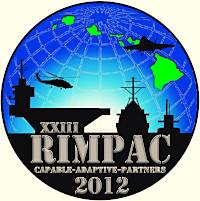WASHINGTON, Oct. 27, 2010 — A free smart phone mobile application that will help servicemembers, veterans and family members track their emotional health is now available, Defense Department officials announced this week.
The application was developed at the National Center for TeleHealth and Technology at Joint Base Lewis-McChord, Wash.
“Our mission here … is to leverage technology to support the behavioral health needs of servicemembers and families,” Perry Bosmajian, a psychologist with the center, told American Forces Press Service.
Though several companies and organizations offer online, digital and even paper mood-tracking tools, he said, the DOD center “focused on issues that would be related to deployment.”
The application lets users monitor emotional experiences associated with common deployment-related behavioral health issues such as post-traumatic stress, brain injury, life stress, depression and anxiety, Bosmajian said. Users also can add issues they’d like to monitor, such as pain.
Each issue has a set of 10 descriptions called affective anchors, or feeling anchors, that let users focus in on exactly how the issues are making them feel. Within depression, for example, the rating screen shows a set of 10 anchors, Bosmajian explained. “One might be depressed-happy, and you would move a slider to indicate where on that scale you fit,” he said.
Others might include worthless-valuable, tired-energetic or lonely-involved. The application also lets users make notes about special circumstances for any given day or rating.
“It’s very easy,” Bosmajian said. “It’s the same as typing in a text message.”
The application keeps track of the user’s inputs. “Once you’ve made your rating for a given day,” he said, “you go immediately to a graph that shows every rating you’ve done in that particular area. If you were rating depression, you’d get a graph of all your depression ratings for as long as you’d been monitoring that issue.”
Servicemembers, veterans or family members can use the results as a self-help tool or share them with a therapist or health care professional as a record of their emotional experience over time.
“Therapists and physicians often have to rely on patient recall when trying to gather information about symptoms over the previous weeks or months,” Bosmajian said. “Research has shown that information collected after the fact, especially about mood, tends to be inaccurate. The best record of an experience is when it’s recorded at the time and place it happens.”
Bosmajian said more than 5,000 people have downloaded the application in just over a month and have recorded more than 8,000 sessions.
Use of the application, he added, spans every continent except Antarctica. “We’ve gotten very good feedback from users,” he said. “It has a four-plus star rating.”
The National Center for TeleHealth and Technology is part of the Defense Centers of Excellence for Psychological Health and Traumatic Brain Injury.
The T2 MoodTracker application, available now for smart phones that use Google’s Android operating system, should be available for iPhone users in early next year.
Source:
U.S. Department of Defense
Office of the Assistant Secretary of Defense (Public Affairs)

 von
von 